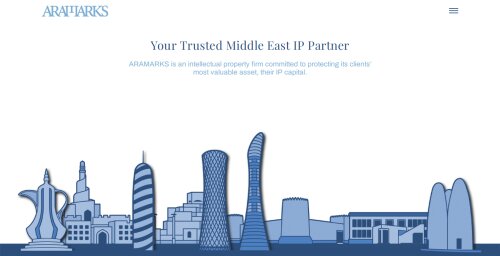Best Natural Resources Lawyers in Qatar
Share your needs with us, get contacted by law firms.
Free. Takes 2 min.
Or refine your search by selecting a city:
List of the best lawyers in Qatar
About Natural Resources Law in Qatar
Qatar is blessed with abundant natural resources, primarily petroleum and natural gas, which play a critical role in its economy. The extraction, management, and conservation of these resources are governed by specific legal frameworks, making natural resources law a significant area of legal practice in Qatar. The sector contributes immensely to the country's GDP and supports various industries, thus ensuring its proper governance is of utmost importance. Understanding the laws and regulations surrounding this sector is crucial for anyone involved in the exploration, extraction, or management of natural resources.
Why You May Need a Lawyer
There are several situations where obtaining legal advice for natural resources in Qatar might be essential:
- Contract Negotiations: Drafting and reviewing contracts for the exploration and extraction of resources require legal expertise to ensure compliance with local and international laws.
- Regulatory Compliance: Understanding and adhering to the complex web of regulations surrounding natural resource extraction and management.
- Environmental Impact Assessments: Ensuring that operations meet environmental standards and guidelines, which may involve complex scientific and legal interplay.
- Dispute Resolution: Addressing conflicts over land use, resource extraction rights, and contractual breaches.
- Investment and Mergers: Legal guidance on investments, acquisitions, or mergers in the natural resources sector.
Local Laws Overview
The natural resources sector in Qatar is primarily governed by laws such as:
- Petroleum Law: The rules and regulations specifically designed to manage oil and gas extraction, ensuring sustainable and ethical use of these resources.
- Environmental Protection Laws: These laws ensure that companies involved in the extraction and management of natural resources adhere to strict environmental standards to minimize ecological impact.
- Foreign Investment Regulations: Managing the extent and method of foreign participation in Qatar’s natural resources sector.
- Land Use Laws: Regulations that oversee the allocation and use of land for resource extraction, ensuring that projects are carried out on suitable and legally approved sites.
Frequently Asked Questions
What are the key natural resources of Qatar?
Qatar's key natural resources are petroleum and natural gas, making it one of the world's largest exporters of these commodities.
Who regulates natural resource extraction in Qatar?
The Ministry of Energy and Industry, along with other relevant bodies, regulates the exploration and extraction of natural resources in Qatar.
How does Qatar ensure environmental compliance in resource extraction?
Qatar has strict environmental laws that companies must adhere to, with regular environmental impact assessments and audits conducted to ensure compliance.
Can foreign companies invest in Qatar's natural resource sector?
Yes, foreign entities can invest, but they are subject to specific regulations and must often partner with local companies due to laws governing foreign investment.
What legal documentation is needed for natural resource contracts?
Comprehensive contracts are required, covering aspects such as extraction rights, environmental compliance, profit-sharing, and dispute resolution.
What types of disputes typically arise in this sector?
Common disputes include those over land use, contractual obligations, profit-sharing, and regulatory compliance.
How are environmental laws impacting resource extraction projects?
Environmental laws mandate thorough assessments and sustainable practices, which can influence project timelines and costs.
Is there a legal process for addressing ecological damage in Qatar?
Yes, there are legal avenues for addressing and compensating for ecological damage, often involving fines and mandatory remediation measures.
What role do international laws play in Qatar's natural resource sector?
International laws affect trade and environmental standards, ensuring that Qatar's practices align with global expectations.
How can a lawyer assist with compliance in this sector?
Lawyers offer expertise in navigating complex regulations, ensuring contractual and regulatory compliance, and handling any disputes or legal proceedings.
Additional Resources
There are several resources and organizations in Qatar that can be helpful for someone needing legal advice in natural resources:
- Ministry of Energy and Industry: The government body responsible for regulating the energy sector.
- Qatar Petroleum: A key player in Qatar’s energy industry, providing comprehensive details and guidelines for operations.
- Qatar's Environmental Laws Database: An online resource for detailed legal information on environmental regulations.
- Local Legal Firms: Firms specializing in energy and environmental law can offer professional legal guidance and assistance.
Next Steps
If you require legal assistance in the field of natural resources in Qatar, consider taking the following steps:
- Research and Identify Needs: Clearly define your legal requirements and objectives.
- Consult with Professionals: Reach out to a legal professional or firm with expertise in natural resources law.
- Gather Documentation: Collect all relevant contracts, agreements, and regulatory documents related to your query.
- Schedule a Meeting: Arrange a consultation with a lawyer to discuss your situation and explore possible solutions.
- Follow Legal Advice: Adhere to the guidance and strategies provided by your legal counsel to ensure compliance and protection of your interests.
Lawzana helps you find the best lawyers and law firms in Qatar through a curated and pre-screened list of qualified legal professionals. Our platform offers rankings and detailed profiles of attorneys and law firms, allowing you to compare based on practice areas, including Natural Resources, experience, and client feedback.
Each profile includes a description of the firm's areas of practice, client reviews, team members and partners, year of establishment, spoken languages, office locations, contact information, social media presence, and any published articles or resources. Most firms on our platform speak English and are experienced in both local and international legal matters.
Get a quote from top-rated law firms in Qatar — quickly, securely, and without unnecessary hassle.
Disclaimer:
The information provided on this page is for general informational purposes only and does not constitute legal advice. While we strive to ensure the accuracy and relevance of the content, legal information may change over time, and interpretations of the law can vary. You should always consult with a qualified legal professional for advice specific to your situation.
We disclaim all liability for actions taken or not taken based on the content of this page. If you believe any information is incorrect or outdated, please contact us, and we will review and update it where appropriate.
Browse natural resources law firms by city in Qatar
Refine your search by selecting a city.

















